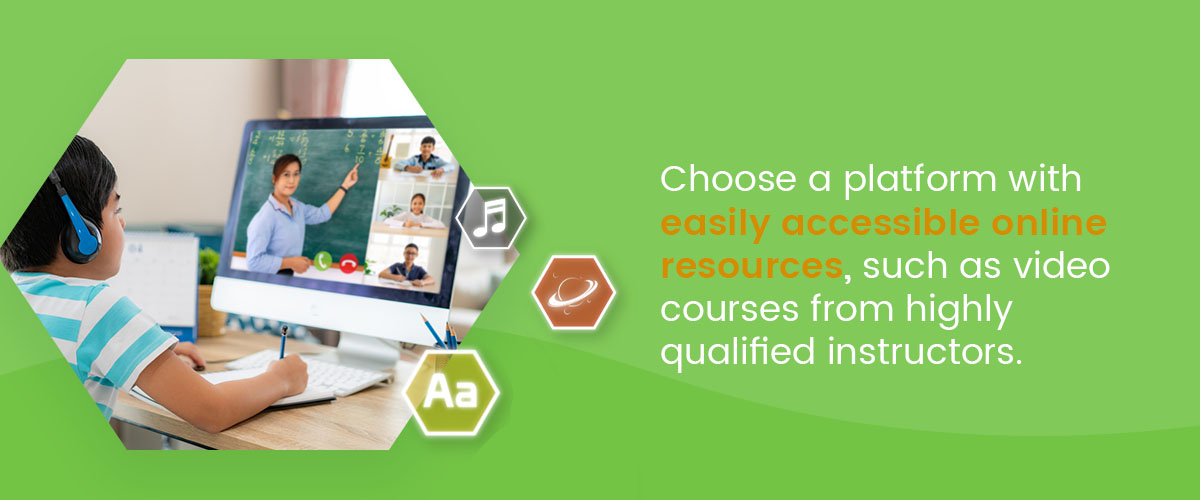Does your child need help connecting with their current homeschool curriculum? Supplemental homeschooling helps students stay engaged and understand complex topics. This guide explores the benefits of homeschool supplement programs for students of all ages and how to find a program to meet your child’s needs.
What Is a Supplemental Homeschool Curriculum?
Supplemental homeschooling is an additional learning program that enriches your existing homeschool routine. The best homeschool supplement programs match your child’s learning goals and promote continuous learning opportunities.
Why Consider Homeschool Supplement Programs?
Supplemental homeschooling boosts academic performance by filling gaps in learning programs.
- Advanced learning: After you’ve taught your child the basics of a topic, supplemental online learning may offer more detailed and comprehensive information to expand their knowledge.
- Addresses instructional discrepancies: Homeschooling parents are not necessarily experts in every subject. A supplement program gives your student the resources they need to grasp complex concepts.
- Steady pace: Whether your child learns quickly or needs more time to retain information, some supplemental programs may include self-paced programs to match academic needs.
How to Choose a Supplemental Homeschool Program
Here are seven things to consider when selecting an appropriate supplement program.
1. Identify Curriculum Gaps
Assess your current curriculum to identify where your child may need extra help. Your supplemental homeschool program’s scope, educational goals and learning methods should align with your existing program, so students can attain all the relevant information.
You should also focus on your long-term educational goals for your child. For example, you’ll want to ensure the supplemental curriculum has features that prepare your child if you plan to transition them to traditional schooling methods when they reach college.
2. Consider Flexibility and Accessibility
Versatility is the primary appeal of homeschooling for many parents. Like adults, kids’ focus and energy ebbs and flows throughout the day. A flexible, self-directed curriculum lets your students learn when they are most receptive to the lesson. You can also build field trips and other extracurricular activities into your child’s schedule to enhance their coursework.
Choose a platform with easily accessible online resources, such as video courses from highly qualified instructors.

3. Assess Your Child’s Learning Style
Evaluate your child’s strengths, weaknesses and interests to determine their learning style and choose a program to match. For instance, the curriculum may include diagrams, videos and charts to help visual learners absorb information, or it can incorporate YouTube tutorials or other opportunities for kinesthetic students to perform a task themselves for hands-on understanding.
4. Identify Skills that Need Reinforcement
Supplemental homeschool programs do more than expand students’ existing knowledge. They also build robust study habits and motivation to continue learning. Depending on the course’s structure and focus, students may gain skills in reading, writing and mathematics, improve their concentration, confidence and perseverance and learn to become self-sufficient.
Establish the skills your student needs to improve and find a curriculum that contributes to them.
5. Consider Interactive Lessons for Enhanced Learning
Interactive lessons may improve engagement and memory retention, making them an excellent consideration when choosing an ideal supplemental homeschool program.
Various supplemental resources encourage interactivity, such as platforms for communicating with educators and students, digital classes, printable content, workbooks, audiobooks, educational videos and hands-on kits, depending on their learning style.
6. Evaluate Reviews and Testimonials
Once you’ve created a shortlist of viable supplemental homeschooling program options, look for testimonials to refine your search.
Social media groups and local homeschooling communities are excellent places to find reviews and receive valuable insights about curriculum choices and suggestions. Pay attention to reviews that specifically mention educational goals and learning style.
7. Budget for the Cost
You must plan for the expenses associated with your child’s supplemental curriculum. For instance, your student may need materials for hands-on learning and science experiments.
Tips for Balancing Supplemental Classes With Core Curriculum
Find a way to effectively integrate supplemental classes into your student’s existing homeschooling routine in a way that’s easy for them to manage. Here are a few tips to find that balance for yourself and your child.
- Start small: Avoid overwhelming your student by introducing one element of the supplemental learning program at a time. For example, you might switch to a more engaging or easier-to-understand lesson to help your child master a challenging topic.
- Align material with weekly educational goals: Give your student supplemental materials related to their current coursework during the same week so the information is still fresh and relevant.
- Make it fun: Gamify learning and pair interesting supplemental materials with challenging homeschool content.
- Choose appropriate lesson times: If you and your child opt to incorporate supplemental homeschooling separately from core courses, pick an ideal time of day to prepare them for new topics. For example, some children are morning people, while others have more energy in the afternoon or evening.
Leverage Homeschool Supplement Programs From Power Homeschool

Supplemental homeschool resources can be excellent tools for enriching the homeschooling experience and expanding your child’s knowledge. Power Homeschool is the official provider of hundreds of Acellus® courses for homeschooling parents.
Our platform provides flexibility and improved accessibility, allowing students to learn at their preferred pace and develop the skills needed to help attain long-term success. For flexible homeschool programs that cater to your student’s learning style, learn more about our homeschool program or browse our online homeschool courses today.


